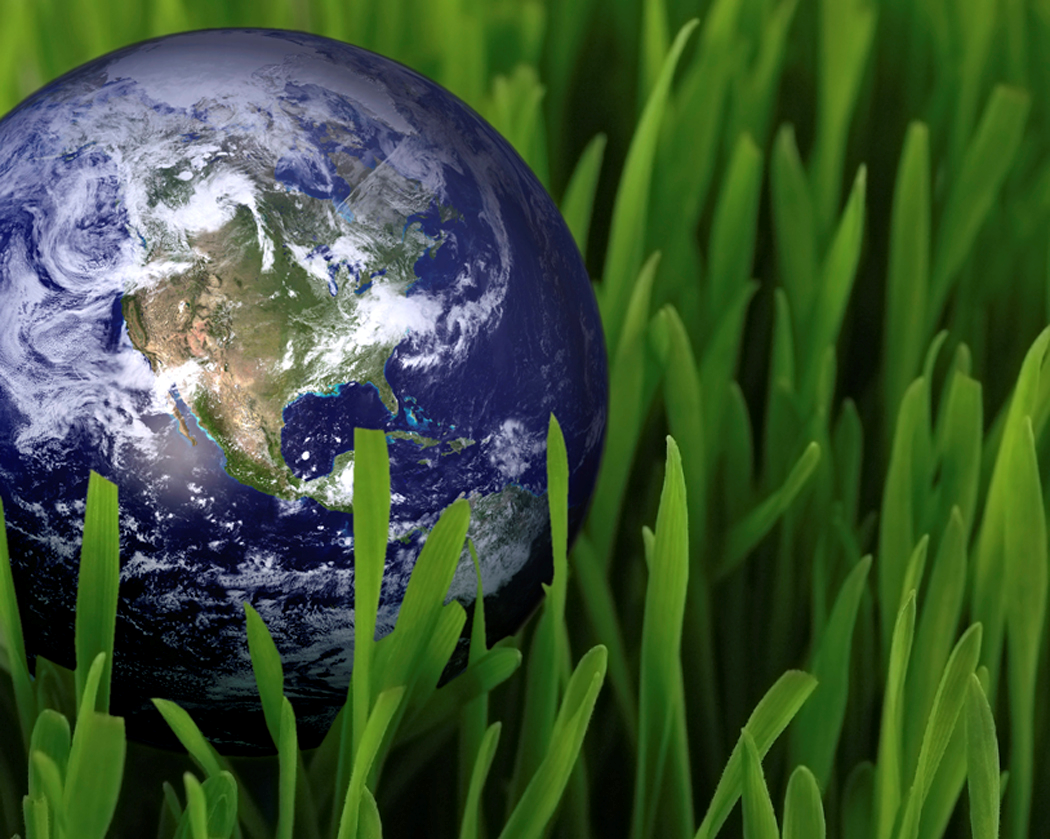Earth Day is the day when Christians have the opportunity to celebrate God’s amazing gift of creation to all of humankind. In the past, few Christians saw reason to celebrate Earth Day. It seems we were unable to connect the budding environmental movement with our practice of the Christian faith. The problem was not necessarily that we didn’t care about environmental issues, though that can still be said for some, the problem was in our inability to respond theologically to a changing world. Today people of faith all over the earth are being drawn to a deeply imbedded connection with God’s creation as we realize that Earth Day just might be a holiday for the Church to celebrate.
For millennia human beings were able to take for granted the finite nature of creation and still see little damage. There were few enough of us that the damage we inflicted on the earth would always heal itself given enough time. Little theological reflection was given to humanity’s role in creation beyond an understanding of God as creator. As humanity has entered the 21st century we have begun to realize the ramifications of exponential population growth, unchecked fossil fuel combustion, and massive deforestation. Today we know that humanity’s activities on this planet are the main cause of environmental degradation, loss of biodiversity, and threatening changes in the earth’s climate. As the writer’s of a magnificent booked called Evangelical Ecotheology suggest, the church of our day needs theologians who can bring ecology and theology together to help lead the way. They call this ecotheology.
It’s now the Church’s time to claim all of God’s creation as a priceless gift and develop a robust biblical theology around the issues facing our planet. Sadly, some of the churches in America still stands against the biblical call to steward creation as a gift from God. But this will become more and more a minority fringe as we continue to understand the realities facing our planet and the people thereof. Many parts of the church of Jesus Christ are poised for action and ready to lead our culture on emerging issues of environmental justice and long term care for creation.
I’ve been saying for years that if the global church would lead the environmental movement massive positive change would happen. I always imagined the mainline denominations leading the way with evangelical churches following. By God’s grace it seems we will all be following Pope Frances and the Catholic Church as he appropriately takes the lead. A few months ago I asked a Catholic priest about the upcoming encyclical on the environment, due out early this summer. I was excited to hear his take on the Pope’s stance for climate justice. What this friend was able to understand for the first time was the direct connection between care for creation and care for the poor. This will be a point of conviction for many Christians as our climate continues to shift and it becomes more and more obvious that environmental justice and social justice are inseparable. While earth care and people care are two inseparable ethics, each contains its own inherent worth. Christians of the 21st century must fight with equal vigor for issues of the environment and issues of the poor and oppressed. In many cases these issues will intersect and overlap.
According to Genesis 1:26, God created humanity in God’s own image, an image that reflects profound and unlimited creativity and an obvious love for His creation. Immediately following, we learn that it is humanity’s vocation to care for, steward, and fill that creation. As we move forward in the 21st century, the church must take the lead in celebrating our role as the caretakers of planet earth. We must act on the behalf of all people and all living creatures to succeed in vocation as caretakers. We are given the blessing of celebration in the beauty of God’s creation. Earth Day might become an important day in the church calendar, not as a nominal secular holiday, but a church holiday, representing one of the major callings of God’s church for the 21st century.
The Rev. John Creasy ’06 is associate pastor of the Open Door and director of Garfield Community Farm, ecologically diverse neighborhood farm on nearly three acres of land at the top of the Garfield neighborhood in Pittsburgh. This farm serves to educate the local church on our call as Christians toward environmental sustainability and to provide healthy organic produce to those of lower income in the neighborhood.


Good to find an expert who knows what he’s taiklng about!